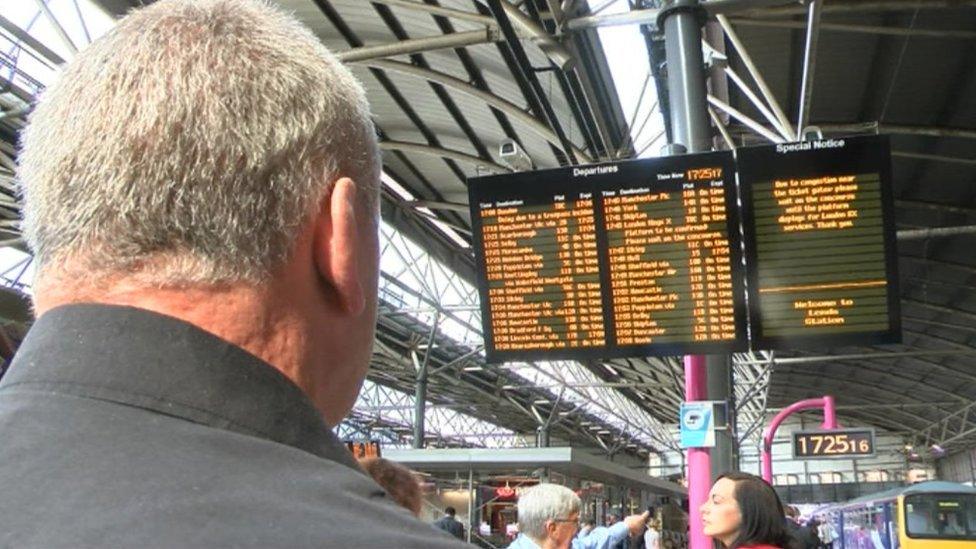Rail chaos: GTR ordered to spend £15m on improvements for passengers
- Published
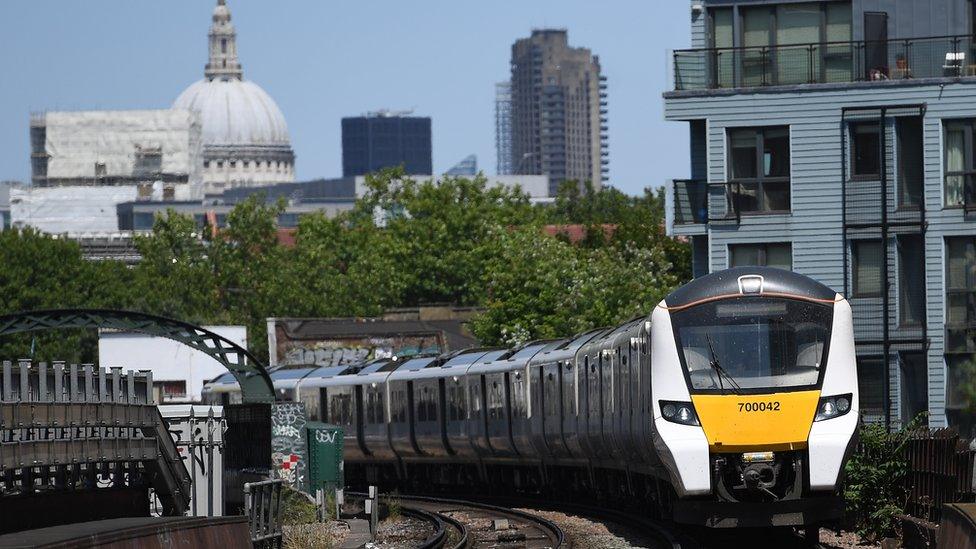
Govia Thameslink Railway (GTR) must contribute £15m towards improvements in services for rail passengers and will make no profit in 2018, the Department for Transport (DfT) has said.
The company has already spent a similar amount in passenger compensation after chaos following May's new timetables.
The DfT said: "Performance after the May timetable change was unacceptable."
MPs also said that Transport Secretary Chris Grayling should have been more proactive in preventing the problems.
In a scathing report on May's timetable changes, the Transport Committee said "genuine change" was needed to restore trust in the railways.
Information gap
Although Mr Grayling had not been fully informed, this could not absolve him of all responsibility, the MPs said.
It was extraordinary that no-one took charge of the situation, they said.
Mr Grayling admitted mistakes had been made, telling the BBC's Today programme: "I accept responsibility for myself and my department not asking tough enough questions."
But he added: "At no point did I get the information that I would have needed to intervene."
The DfT decided not to strip GTR - which is 65%-owned by UK transport company Go-Ahead - of the franchise, because it said that would "cause further and undue disruption for passengers, and is not an appropriate course of action".
But its sanctions on the company mean it will make a reduced profit for the rest of its time in charge.
The DfT said it would continue to monitor the performance of GTR, "particularly during the upcoming December timetable change".
"These measures do not make GTR immune from further sanctions in the event of any subsequent failure to perform."
In the middle of May, passengers suffered delays and cancellations after the biggest timetable change in a generation.
The upgrade - which involved changes to 46% of train times - mainly affected Northern trains and GTR routes into London.
Over several weeks, GTR and Northern cancelled up to 470 and 310 scheduled trains respectively each weekday.
And in July, it was announced that a timetable overhaul planned for December had been scaled back.
Labour MP for Middlesbrough, Andy McDonald, and Tim Farron, Lib Dem MP for South Lakes, have both called for Northern to be stripped of its franchise.

Analysis
Tom Burridge, BBC transport correspondent
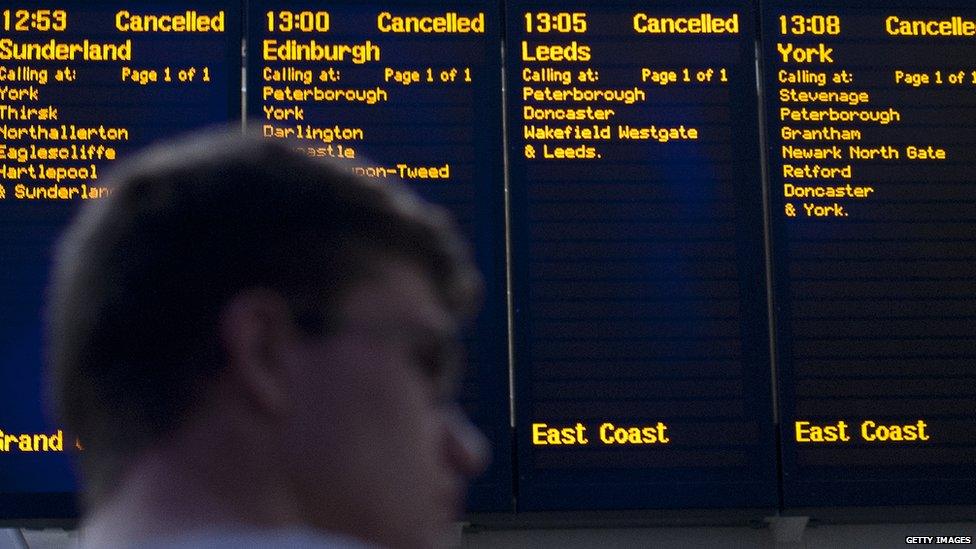
And so the punishment lands, although the "p-word" in this context is a touch misleading.
In reality, GTR and the government have been locked in long protracted negotiations.
Yes, GTR was largely to blame for the chaos inflicted on thousands of its passengers.
But Chris Grayling's government department is partly culpable too.
The other caveat is the fact that GTR's franchising agreement was set up to be fundamentally different to most others as its ticket revenue goes to the government, not to itself.
GTR is paid a "management fee" for running the franchise and can earn above and beyond that if its trains run on time and passengers are happy.
As passengers were, understandably, hopping mad, the announcement the company will make no profit this year feels slightly hollow.
Their profits being capped in subsequent years is more significant.
The government calls the action "robust", but in reality this is the best it could achieve given the complexities of the contracts and rail system itself.
And the timing of the announcement, on the day Chris Grayling faces criticism from MPs, is more than convenient.

'Astonishing complexity'
Changes to the national rail timetable happen each May and December and are often relatively minor tweaks.
But last May, after major infrastructure works, a far bigger timetable overhaul was introduced, involving 43,200 individual changes and affecting 46% of passenger services.
MPs said its implementation was chaotic and resulted in inconvenient, costly and potentially dangerous disruption for passengers.
The chaos was partly caused by the "astonishing complexity" of a fragmented railway in which inter-related private train companies, operating on publicly-owned and managed infrastructure, have competing commercial interests, the report said.
It concluded that no-one took charge. Mr Grayling had the ultimate authority to judge trade-offs between competing commercial interests and he should have been more proactive, the report said.
"There was extraordinary complacency about protecting the interests of passengers, who were very badly let down," said committee chairwoman Lilian Greenwood.
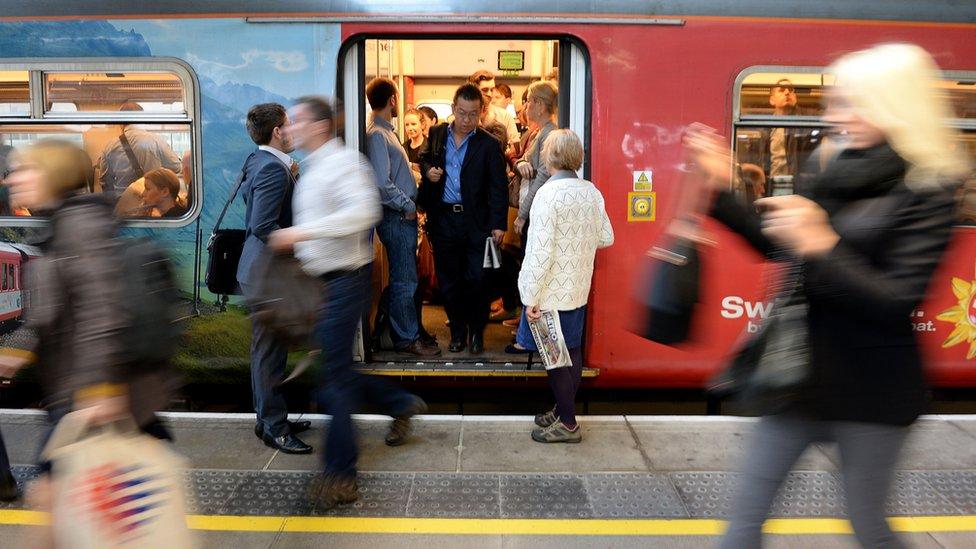
MPs say the rail timetabling process requires genuinely independent oversight
Last week's announcement that rail fares will increase by an average of 3.1% next year added "insult to passengers' injury", said Ms Greenwood.
Mr Grayling has announced a year-long independent rail review, chaired by Keith Williams, deputy chairman of John Lewis Partnership and former chief executive of British Airways.
But MPs said passengers cannot wait that long for lessons to be learned and reforms implemented. They recommend:
Establishing effective independent oversight of the next national rail timetable changes
Worst-affected 2018 season ticket holders should receive a discount on 2019 season tickets
Effective contingency plans for disabled passengers and stringent enforcement
Automated or automatic compensation schemes.
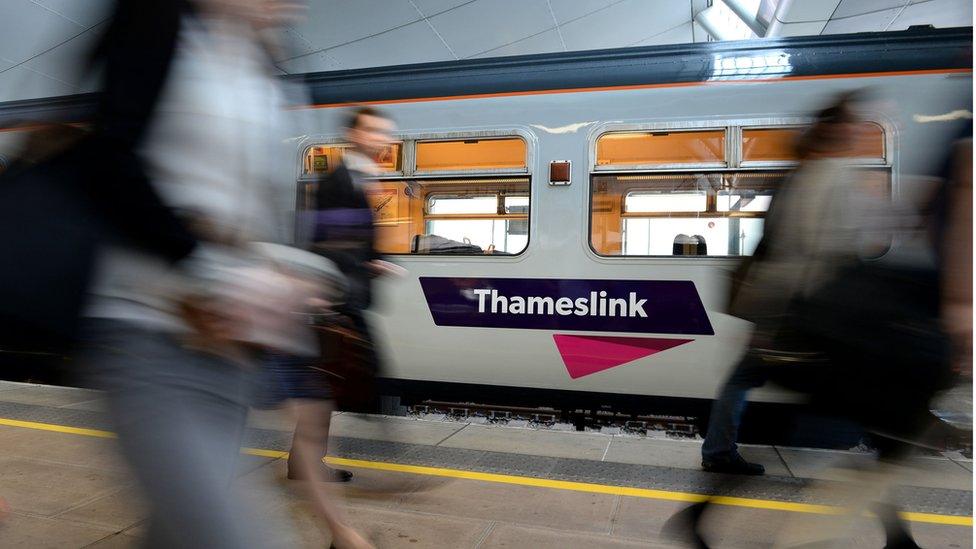
Govia Thameslink Railway chief executive Patrick Verwer says services are now more reliable
Mick Cash, leader of the Rail, Maritime and Transport union, described the report as "devastating" and laid the blame on the "disastrous fragmentation of our railways" as well as Mr Grayling.
Anthony Smith, chief executive of watchdog Transport Focus, said: "This industry knows it must deliver a smooth set of changes when the next round of timetable changes takes effect this Sunday.
"They must show they've learned lessons after a torrid summer of timetable crisis, and are acting to improve performance."
GTR chief executive Patrick Verwer said the firm had already processed compensation claims for 68,000 season ticket-holders, with the deadline for claims extended to 31 January 2019.
He said: "Since July, services on Thameslink and Great Northern have become more stable and reliable."

Are you a GTR passenger? Where would you like to see the improvement money spent? What changes need to happen? Let us know by emailing haveyoursay@bbc.co.uk, external
Please include a contact number if you are willing to speak to a BBC journalist. You can also contact us in the following ways:
WhatsApp: +44 7555 173285
Tweet: @BBC_HaveYourSay, external
Send pictures/video to yourpics@bbc.co.uk, external
Text an SMS or MMS to 61124 or +44 7624 800 100
Please read our terms & conditions and privacy policy
- Published26 November 2018
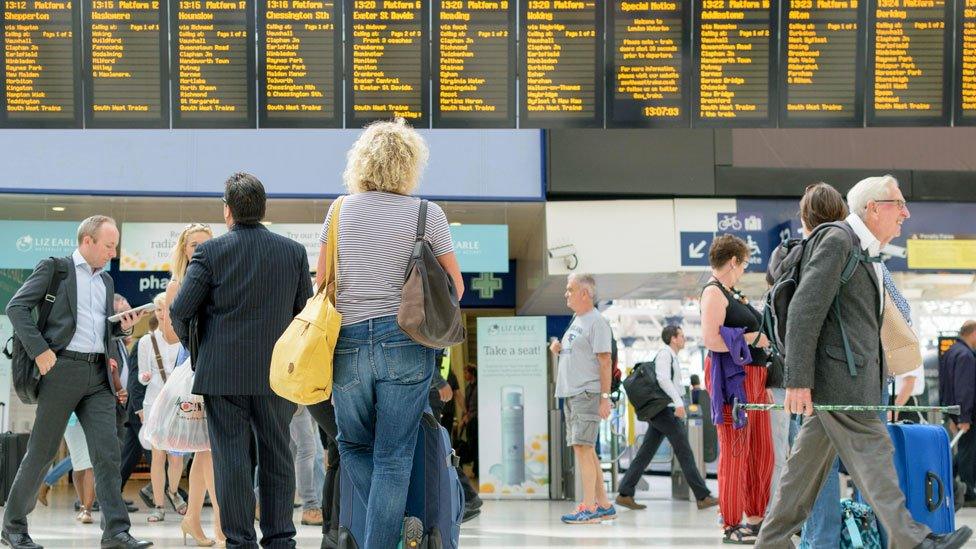
- Published20 September 2018
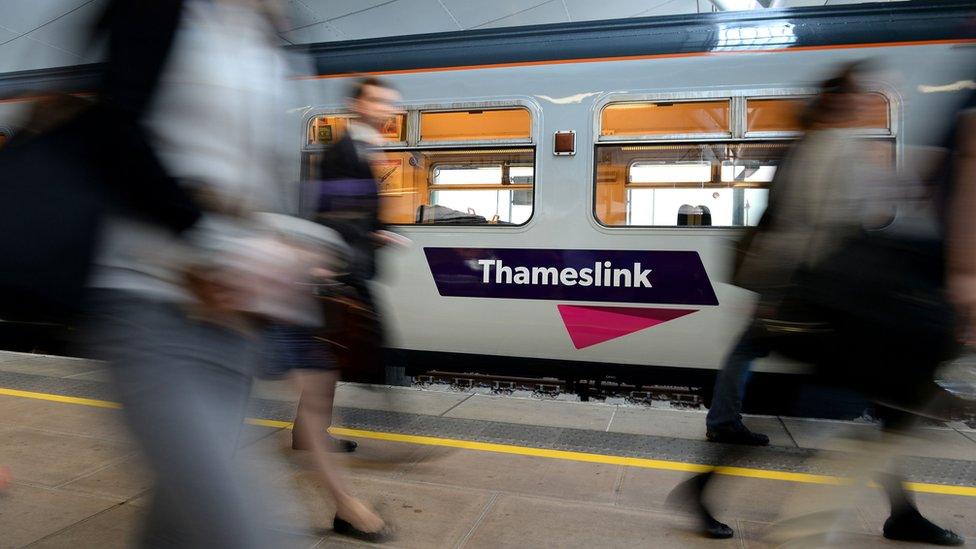
- Published13 July 2018
